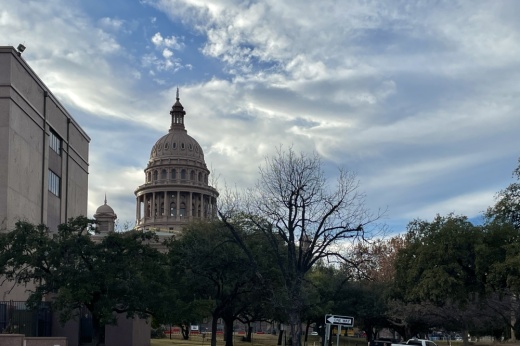During Winter Storm Uri, more than 200 people died without electricity in freezing weather when much of the grid shut down. State senators voted in favor of five bills that would make changes to the state’s grid and energy market.
Senate Bills 6 and 7, authored by Senator Charles Schwertner, R-Georgetown, are legislative priorities for Lt. Gov. Dan Patrick.
“Winter Storm Uri, we had to take action so that event never happened again,” Patrick said.
Although progress was made last session, he said there is more work to do.
The Texas Energy Insurance Program, created under SB 6, would build new natural gas power plants to guarantee 10,000 megawatts of dispatchable generation across the state, enough to power 7.5 million homes, Schwertner said.
These plants would be used as a backup, only to turn on when the Electric Reliability Council of Texas' energy reserves fall below 1,000 megawatts. It also creates a zero-interest loan program to help companies that generate electricity improve and maintain facilities.
Texans would pay for the plants on their monthly electricity bill with a guaranteed rate of return for the companies who build them, even if those costs become stranded, said Josh Rhodes, a research scientist at The University of Texas at Austin.
“There's no way for this to lose money, which is why there are plenty of companies who would love to build it,” Rhodes said. “The negatives will be that if they never get used, then we just paid for a lot of insurance that was not needed.”
Michele Richmond, executive director of the Texas Competitive Power Advocates, a trade association representing wholesale power marketers and generators in ERCOT, testified against the bill.
“These are a fundamental U-turn away from the competitive electric market,” Richmond said. “It represents a costly tax on consumers that does not improve reliability or make the market economic for dispatchable resources.”
Schwertner said reliability would come at a cost, estimating an additional $2 to $3 a month on ratepayer’s bills.
“That is one thing that I believe homeowners would say, ‘Yes, we have a more reliable grid. I’m willing to pay that,’” Schwertner said.
Texans would have to vote in favor of a constitutional amendment for the bill to take effect.
SB 7 would require generators to pay for a new energy supply service if they could not meet customer demand, assigning greater costs to renewable resources like solar and wind.
The bill is intended to encourage the construction of more dispatchable generation as renewable generators would have to pay for the service to operate without sun or wind.
“Reliability does come at a cost, and for too long that cost has not been shared equally between intermittent and firm generation,” Schwertner said at a press conference introducing the bills. “Senate Bill 7 tries to bring balance to the market by making sure everyone is equally contributing to reliability.”
Cyrus Reed, conservation director for the Lone Star Chapter of the Sierra Club, testified in support of the new energy service, but expressed concerns about how costs would be allocated.
“We think there's a need for this service,” Reed said. “But it would mainly be an extra cost to renewable energy, just because they tend to be more variable. We would write the bill to have ERCOT develop and assign the costs as they do current ancillary services.”
The bills will now advance to the Texas House.





